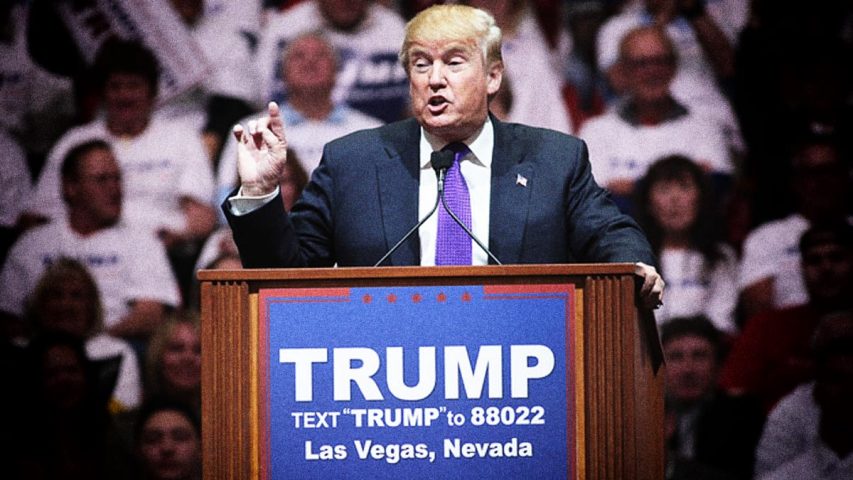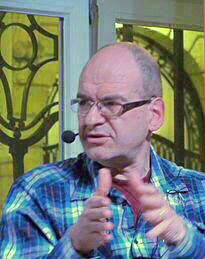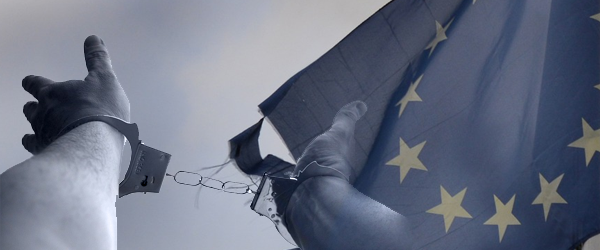- Have any questions? Contact us!
- info@dr-rath-foundation.org

The Skyrocketing Price of Cancer Drugs: The Pharma Cartel’s Desperate Gamble
May 5, 2016
Awareness Of Brussels EU’s Nazi Roots Becoming Mainstream
May 20, 2016Donald Trump’s Alleged Links To The Mob: Following The Brussels EU Model?

Image by Gage Skidmore from Peoria, AZ, United States of America (Donald Trump) [CC BY-SA 2.0], via Wikimedia Commons
While a recent poll suggests more than half of Americans now believe the procedure used by U.S. political parties to select candidates for the presidency is “rigged”, the fact is that Republican contender Donald Trump’s alleged mob connections raise equally serious questions about democracy in America today. Described by CNN – citing an interview with investigative journalist Wayne Barrett – as being “extraordinarily extensive,” Trump’s suspected ties to New York and Philadelphia organized crime families are said to go back decades.
In his 1992 biography of the billionaire, Trump: The Deals and the Downfall, Barrett wrote that Trump’s life “intertwines with the underworld.” At the time, a Philadelphia Inquirer article notably summarized Barrett’s book by stating that “throughout his adult life, Donald Trump has done business with major organized-crime figures and performed favors for their associates.” It added that Trump had had “numerous” dealings with officials of “mob-controlled” firms and with “mob-influenced unions”. Newsweek has recently weighed in with similar allegations, saying that during his career “Trump has willingly teamed up with a succession of mob-tied figures.”
Mafia and masonic infiltration in the Brussels EU

Whistleblower Paul van Buitenen has spoken openly of his fears of mafia and masonic infiltration in the Brussels EU
Image by Rein1953 (Own work) [CC BY-SA 4.0], via Wikimedia Commons
Take former Italian European Commissioner Franco Frattini, for example. Serving on the Commission between 2004 and 2008, Frattini’s selection for the post was immediately mired in controversy amidst open accusations he was a Freemason.
Freemasonry has been a highly sensitive issue in Italy since 1981, when a secret and illegal right-wing Masonic lodge known as P2 – Propaganda Due – was broken up amid public scandal. Notably, former Italian prime minister Silvio Berlusconi – for whom Frattini has been a loyal aide – was revealed to be amongst the almost one thousand names listed as its members. Others included senior figures in banking, business, the intelligence services, journalism, the military, and politics.
Since then, in the opinion of some former insiders, it would seem that not much has changed. Commenting recently on whether Britain should remain a member of the Brussels EU, Sir Bernard Ingham, former press secretary of British prime minister Margaret Thatcher, described the construct as consisting of the “mafia and assorted criminal drains.” Deriding it as corrupt and “riddled with fraud”, he questioned why Britain would “ever want to be a member of it at all”.
Trump’s common trait with the Brussels EU
 Don’t be fooled by Trump’s bizarre flip-flopping over the question of whether Britain should leave the dictatorial Brussels EU. Following media headlines claiming that he supports Brexit, many people have been led to believe that Trump definitively stands with those who oppose the European construct. The truth, however, may be rather more nuanced than this.
Don’t be fooled by Trump’s bizarre flip-flopping over the question of whether Britain should leave the dictatorial Brussels EU. Following media headlines claiming that he supports Brexit, many people have been led to believe that Trump definitively stands with those who oppose the European construct. The truth, however, may be rather more nuanced than this.
Through his praise of North Korea’s Kim Jong-un for murdering his political rivals; his advocacy of waterboarding and torture; and his opposition to immigration despite being descended from German immigrants himself; it can be seen that Trump’s preferred style of leadership leans far nearer to dictatorship than it does to participatory democracy. In this, while outwardly their styles may be different, he clearly shares a common trait with his mobster counterparts in Brussels. Only time will tell whether they turn out to be rivals or collaborators.



